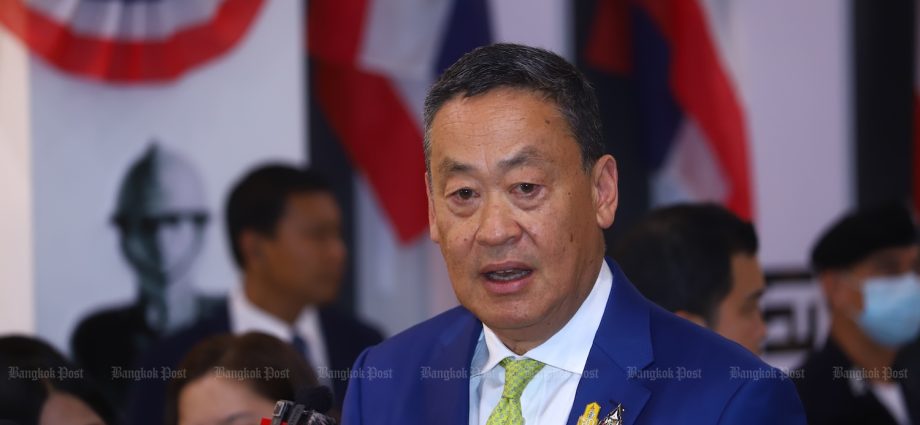‘No power to interfere’ in decisions, PM says after meeting with central bank chief

Prime Minister Srettha Thavisin says he “just explained” his views on interest rates but gave no orders during a highly anticipated meeting on Wednesday with the head of the Bank of Thailand.
“I have no power to interfere” in rate decisions, Mr Srettha told reporters after his talks with central bank governor Sethaput Suthiwartnarueput.
“The BoT is an independent organisation. I haven’t ordered. I just explained the situation.”
The talks came two days after Mr Srettha, who is also the finance minister, publicly urged the central bank to start cutting borrowing costs following months of negative inflation.
The discussions covered interest rates and the economic situation, Mr Srettha said. He acknowledged that the meeting was in no way an exercise to reduce the central bank’s autonomy.
There was no immediate response from Mr Sethaput, but the BoT has scheduled a briefing on Monday to explain its policies.
Mr Srettha said he explained to Mr Sethaput the current economic situation. Southeast Asia’s second-largest economy has been staging the region’s slowest recovery post-pandemic, while inflation has been in negative territory for three straight months through December amid signs of waning demand.
The baht was little changed on a day when most major Asian currencies were down versus the US dollar.
While Mr Srettha believes that cheaper borrowing costs are needed to boost credit demand, and in turn economic activity, the BoT has in the past maintained that the deflationary trend is a result of state subsidies, most notably for electricity and fuel, and is not an accurate reflection of falling consumption.
The central bank paused its tightening campaign in November after eight straight rate increases totalling 200 basis points to a decade-high of 2.50%.
It will hold its next meeting on Feb 7 but so far has not signalled any readiness to start reducing interest rates.
“We maintain our forecast that the BoT will keep the policy rate on hold for the foreseeable future,” said Standard Chartered Bank economist Tim Leelahaphan. “However, we believe risks are increasingly skewed towards a cut in 2024.”
Mr Srettha also said on Wednesday that he would brief the central bank head about the government’s proposed economic stimulus programme at a separate meeting.
Mr Sethaput has expressed some reservations about the 500-billion-baht digital wallet programme, the cornerstone of the government’s stimulus plan.
The economy is forecast to expand by 3.2% this year, up from an estimated 2.5% in 2023, according to the World Bank. Mr Srettha wants to lift that pace to 5% during his term.

